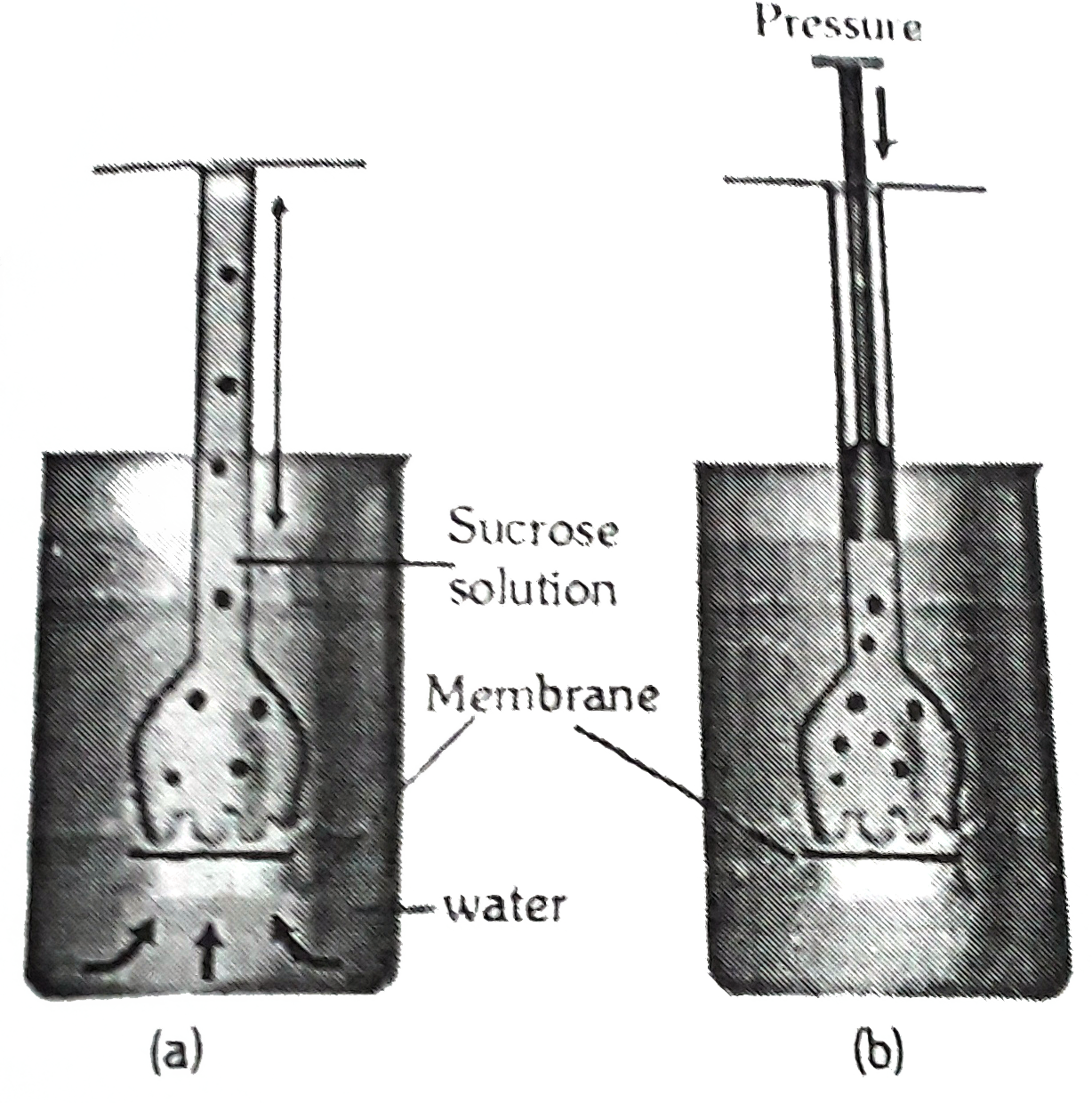Osmotic potential(ψS) of a solution is always :
Positive
Negative
Zero
Variable
The correct Answer is:B
Step-by-Step Solution:
1. Understanding Osmotic Potential (ψS):
- Osmotic potential (ψS) is a measure of the tendency of water to move into a solution due to the presence of solute particles. It is influenced by the concentration of solute in the solution.
2. Types of Solutions:
- There are two types of solutions to consider:
- A solution with solute (e.g., saltwater).
- A pure solvent (e.g., distilled water) which has no solute.
3. Effect of Solute on Osmotic Potential:
- In a solution with solute, the presence of solute particles displaces some of the solvent molecules. This displacement affects the movement of water molecules.
4. Sign of Osmotic Potential:
- The osmotic potential of a solution is always negative. This is because the presence of solute lowers the potential energy of the water in the solution compared to pure water, which is assigned a value of zero.
5. Magnitude of Osmotic Potential:
- The more solute particles present in a solution, the more negative the osmotic potential will be. Thus, there is a direct relationship between the concentration of solute and the magnitude of the negative osmotic potential.
6. Conclusion:
- Therefore, the osmotic potential (ψS) of any solution is always negative, indicating that it is a measure of the tendency of water to move into the solution.
Final Answer:
The osmotic potential (ψS) of a solution is always negative.
---
- Osmotic potential (ψS) is a measure of the tendency of water to move into a solution due to the presence of solute particles. It is influenced by the concentration of solute in the solution.
- There are two types of solutions to consider:
- A solution with solute (e.g., saltwater).
- A pure solvent (e.g., distilled water) which has no solute.
- In a solution with solute, the presence of solute particles displaces some of the solvent molecules. This displacement affects the movement of water molecules.
- The osmotic potential of a solution is always negative. This is because the presence of solute lowers the potential energy of the water in the solution compared to pure water, which is assigned a value of zero.
- The more solute particles present in a solution, the more negative the osmotic potential will be. Thus, there is a direct relationship between the concentration of solute and the magnitude of the negative osmotic potential.
- Therefore, the osmotic potential (ψS) of any solution is always negative, indicating that it is a measure of the tendency of water to move into the solution.
The osmotic potential (ψS) of a solution is always negative.
Topper's Solved these Questions
- TRANSPORT IN PLATS BOOK - MOTIONCHAPTER - TRANSPORT IN PLATS EXERCISE - EXERCISE -2
49 Videos
- TRANSPORT IN PLATS BOOK - MOTIONCHAPTER - TRANSPORT IN PLATS EXERCISE - EXERCISE -3
18 Videos
- TRANSPORT IN PLATS BOOK - MOTIONCHAPTER - TRANSPORT IN PLATS EXERCISE - ANSWER THE FOLLOWING QUESTION
6 Videos
- STRUCTURAL ORGANISATION IN ANIMALSBOOK - MOTIONCHAPTER - STRUCTURAL ORGANISATION IN ANIMALSEXERCISE - Exercise - 4 (ASSERTION & REASON QUESTIONS)
27 Videos
Similar Questions

Study the given figure carefully and select the true and false statement(s) in this demonstration.
(a) Numerically this external pressure in figure (b) is equivalent to the osmotic potential of a solution, but the sign is opposite.
(b) Osmotic pressure is due to the solute concentration.
View SolutionSolute Potential of a solution is always
View Solution
Knowledge Check
Whter potential of a solution is always
Aless than zeroBzeroCmore than zeroDunitySolute potential of 0.a solution is always
A0Bgt0Clt0DBetween 0-1Solute potential of a solution is always
A=0B<0C>0D>1
